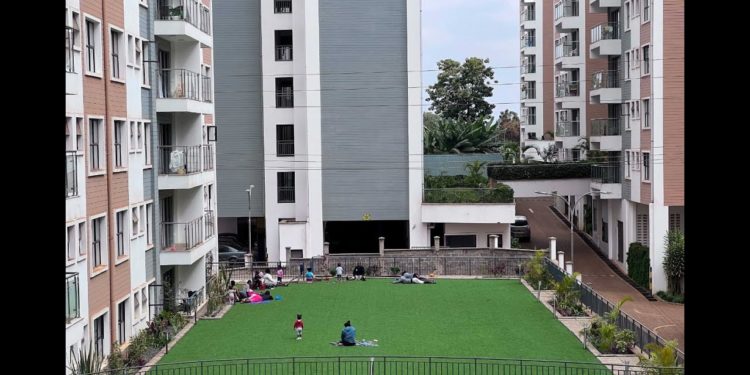The Finance Bill 2023 has proposed imposition of a three percent housing levy on an employee’s basic salary that will then be matched by their employers. Government should drop the Housing Fund idea, but instead engage developers to solve the Housing problem, in my view.
To begin with, the math does not add up. The tiniest live-able house is 27 SQM, that is the size of a bedsitter or a hotel room. It costs about Kshs 45,000 per SQM to construct and put infrastructure. So we are talking about Kshs. 1.2 million to deliver a house at the very cheapest.
For someone earning Kshs 50 000 per month, the median income in Kenya, saving 3% per month translates to 1,500 and employer matches another 1,500 adding to 3,000 per month. It would take them 33 years to afford that house of 1.2 million.
Anyone who has ever saved for a house knows you don’t get a house by saving 3% of your income. When my wife and I first decided to buy a house, we were putting away 40 to 50% of our household income in preparation for deposit and mortgage payments. There is no house you are going to get putting away 3% of your income. The program is flawed from the start and seem solely designed to raise money.
Read:What You Need to Know Inside Finance Bill 2023
Second, times are extremely hard. Inflation up 9%, incomes are down 3%, that’s a total of 12% wiped off the dinner table. Add NSSF up 6%, that brings to 18% already off the table. This is not the time to be adding avoidable taxation.
Third, accountability and transparency on affordable housing this far is lacking. The initiative raises more questions than answers: How much has been spent on the affordable housing initiative since it began and where has the money gone? What is the building cost per square metre and has it been competitive relative to private sector?
Accountability on the uptake of affordable housing so far. How many units were completed and where did they go to? There is a market talk that the completed housing did not go to needy or ordinary Kenyans. They went to a few connected individuals who have in turn rented them out. That was not the intention for affordable housing.
Fourth, the burden is heavier on the poor. A Hustler earning Kshs 16000 will see their income go down by 3%, and yet someone earning ten times, Kshs 160000, will see their income reduce by 1.6%.
Fifth, there is no attempt to improve private sector housing development environment. Government should first attempt to create an enabling environment for private sector housing before burdening tax payers. The best tool to build houses is the REIT, yet we have set a very high minimum of Kshs. 5 million for investors to participate in REITs. No wonder in 10 years, not single Kenyan lives in a house build through REITS.
Read:Affordable Housing Program – A Step in The Right Direction
Sixth, government should restrict itself to the basic public services that we cannot do for ourselves such as security, roads, public health, drainage, climate change… We are taking government too far into private sector. With all the Kenyans drowning in floods and sharing hospital beds, why worry about building houses?
Seven, in cases where we have taken government into private sector arena, such as lending, it has been enormously wasteful. For example, the Youth Fund has spent around Kshs. 4 billion in expenses, to lend out Kshs. 7 billion, of which approximately Kshs. 4 billion (60%), is non performing.
Put it differently, we have lost 8 billion in expenses and non-performing loans, in the pursuit of 3 billion performing loans, that’s a 72% total expense ratio.
Eight, the proposal is silent on what interest rate the Housing Fund will pay to savers, it should at least be equal to government bond rate since you are locked in for 7 years.
Nine, the governance of the Fund remains amorphous, we know what we shall pay, we don’t know how it shall be governed.
Lastly, all in all, this is likely to be a slush fund for corruption, we should vehemently oppose it.
Nothing good can come out this Fund.
Email your news TIPS to editor@thesharpdaily.com
















